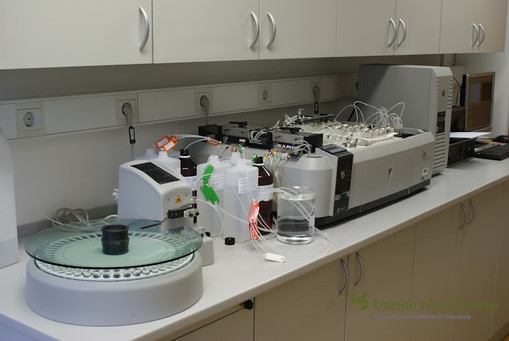Nitrogen is the most important element in plant nutrition. Plants accept nitrogen in the form of nitric (NO3-) or ammonium ion (NH4+). Due to the intensity of nitrification in the soil, with the presence of bacteria, the nitrate (NO3-) is the prevailing form of nitrogen accepted by a plant. Nitrate is very mobile in the soil, and in certain climate conditions and soil structures it leaches into groundwater. The hazard of contaminating groundwater can be decreased by directing fertilisation and by understanding the needs of agricultural plants for nitrogen.
Excessive use of fertilisers can also result in the accumulation of nitrates in agricultural products. Under the effect of microbiological processes, nitrates (NO3-) in the human organism turn into nitrites (NO2-), which are more harmful than nitrates. The toxicity of nitrites has been proven by the reaction with haemoglobin in the blood that forms methemoglobin, which is not capable of transferring oxygen through the organism. Besides the above, nitrites in an organism can also react with organic amines and cause the formation of carcinogenic nitrosamines.
Analysis Methods
|
Sample |
Parameter |
Standard |
|
Soil |
NO3-, NO2-, NH4+ |
ISO 14255 |
|
Agricultural products |
NO3-, NO2- |
EN 12014-7 |
Quality
Since 2007, we have been an accredited laboratory for performing analyses of inorganic forms of nitrogen in soil and agricultural products through the French accreditation committee COFRAC (Comité français d’accréditation). In 2012, the accreditation was transferred to the Slovenian Accreditation in accordance with EA policy (accreditation document LP-020).
Contact person
Dr Veronika Kmecl, univ. dipl. inž. kem., tel.: + 386 1 280 51 64
